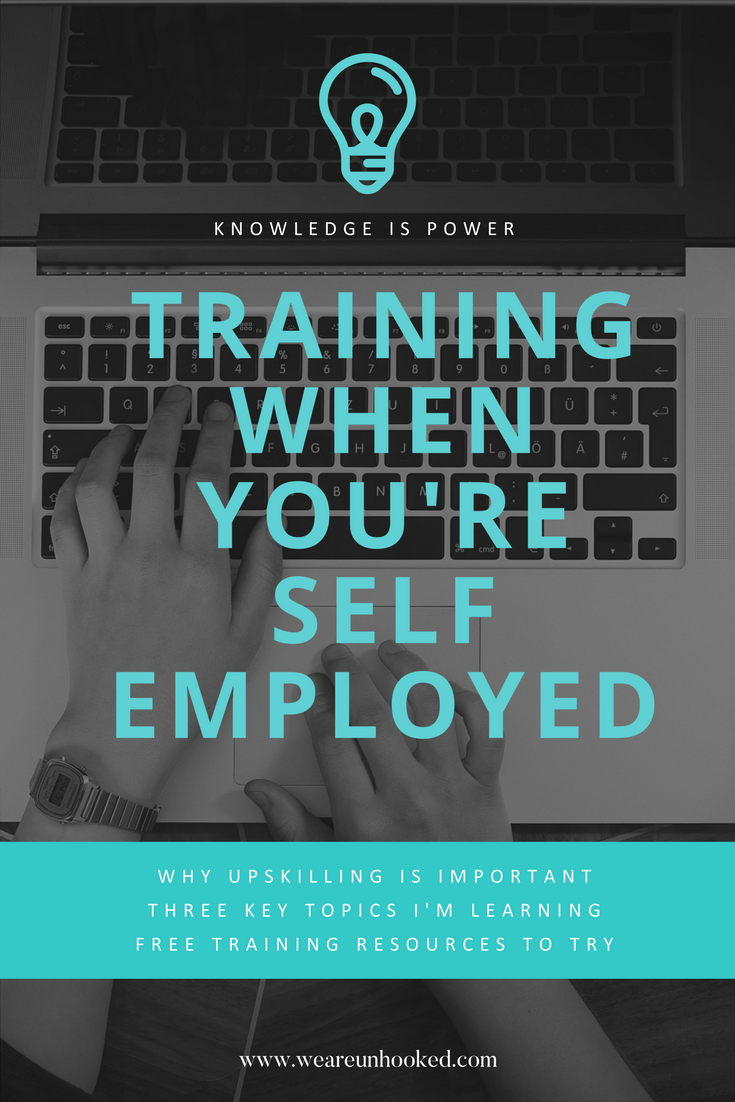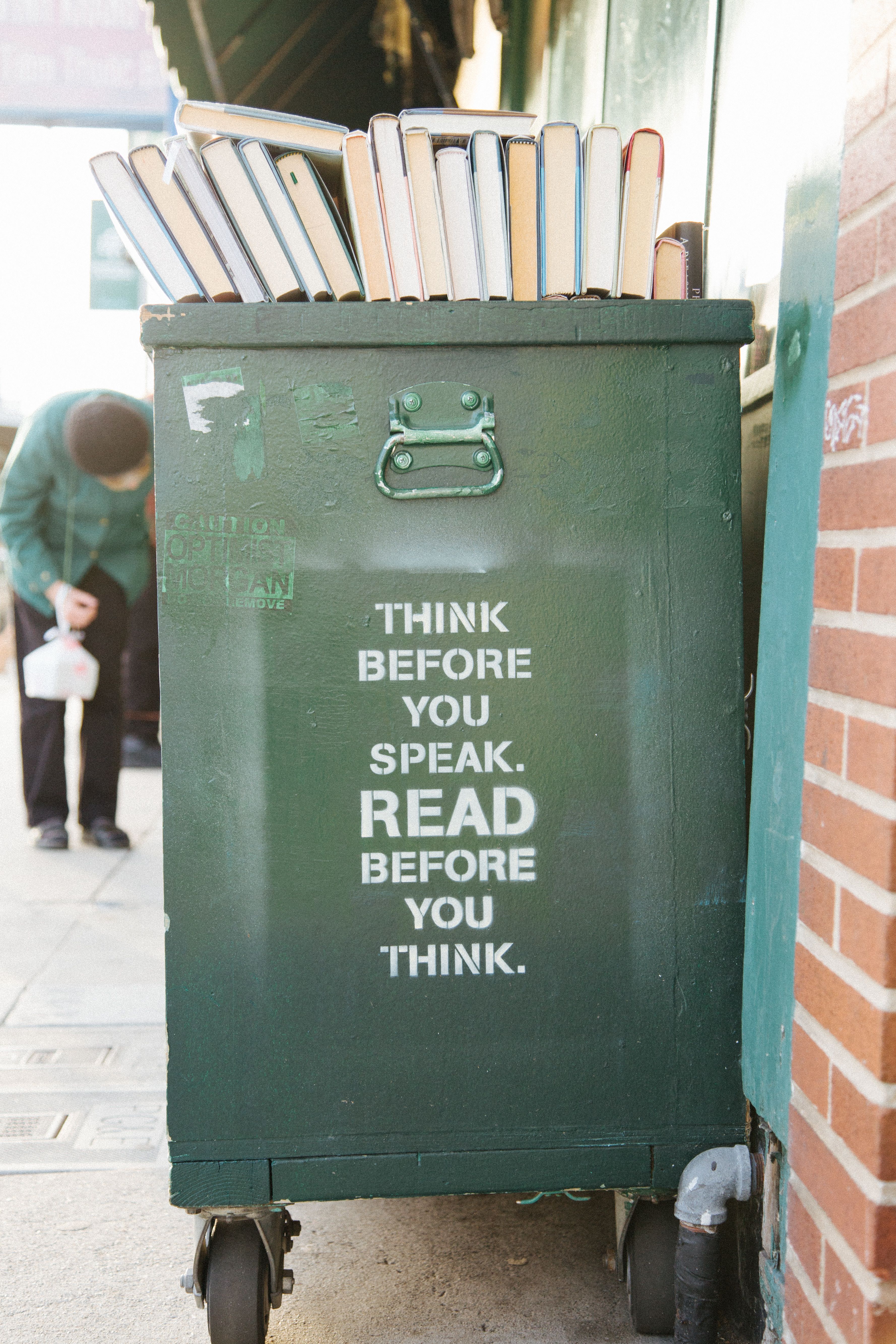Business and career training when you’re self employed or freelance
I’ve been a PR freelancer in Manchester for about four years now, and over that time I’ve learnt a lot in terms of navigating the weird and wonderful world of freelancing and running a business.
However, I’ve not really invested in any formal training to advance my skillset and advance my career. With client work, running a business, moving house, and family life, formal training didn’t feature highly on my list of priorities. But recently, that’s changed.
In this blog post I’ll explain:
- What made me rethink my approach to training
- What topics I’m learning at the moment
And if you’re feeling inspired, you can check out this blog post on 7 ways to learn for free, which includes some of my favourite (free) resources to try.

Taking a step back and rethinking freelance training
Since taking a few months off for maternity leave, I’ve had chance to think and reflect about what I’m doing, how I’m doing it and where my skills and knowledge gaps are.
This wasn’t necessary a conscious thought process. I didn’t sit down and think ‘right, I need to work out what training I need as a freelance PR’. Instead, the combination of stepping back from my day-to-day work and my mind being preoccupied (and sleep deprived) with a new baby gave my mind a chance to wander.
Always the PR and content geek, I started discovering and listing to new podcasts, reading more industry articles, as well as writing and creating videos for a family lifestyle blog. While these are all things I did before, I had the luxury of time to invest myself in these activities.

Every day’s a school day – especially in the PR and marketing industry
Through listening, reading, writing, filming, editing, and building websites, I started picking up new tips, learning new skills and becoming more inspired.
It made me realise that I’d not actively or consciously set out to upskill myself over the last few years. When you’re self-employed, you don’t have the perk of a training budget you can dip into, and you don’t tend to have many people around you who you can learn from on the job.
Although I’d been working hard and had enough work coming in, without pushing myself to expand my knowledge, skills and experience further how long would that last?
And even if work-wise I was OK, would I be happy? I love learning new things and thrive off variety – so it’s important for me to focus on my learning and development, and not to become stuck in a rut.
The PR industry changes so quickly and disciplines are crossing over more and more. While I’m fairly digitally savvy, there are some gaps in my knowledge and areas I would like to be more confident in.
By improving my skills, knowledge and experience not only can I improve my offering to clients, but I can also boost my own business.

Three key areas of my PR, digital and content training and development
I definitely suffer from shiny object syndrome – I get overexcited about this, that and everything in between – but I’ve committed myself to getting to grips with three key areas over the next few months:
PR training 1: Video
Since graduating with an MA in broadcast journalism over 10 years ago, I’m sorry to say I’ve not created many videos or films. Editing was my favourite part of the course and I’m sad that I’ve not pursued more video production opportunities in my career.
But as we’re continuously told about the importance of video in marketing, it’s time I brushed up on my skills. I’ve started by filming and editing short video clips of family days out and holidays, and will start experimenting more with different video formats (vlogs, animations, Facebook Live).
PR training 2: SEO
My first job out of university was as an SEO copywriter, and over the years I’ve worked on many SEO copywriting projects for clients. PRs are well placed to provide SEO services to clients – after all, we should be experts in achieving coverage (and links!) for businesses – and I’ve created and implemented a number of PR SEO campaigns recently.
But the whole SEO universe is huge, and it’s not made particularly easy to navigate with so much conflicting advice out there and a handful of so-called SEO ninjas/gurus/jedis blinding us with science.
I’ve spent hours reading blogs and asking SEO friends questions to build my SEO knowledge. While I have an OK understanding of this area I feel I need to know more. I want to join up all the dots of my knowledge, as well as have the confidence to understand, implement and advise on more SEO steps.
After discovering copywriting and SEO expert Kate Toon through the Hot Copy Podcast, I began listening to her Recipe for SEO Success podcast. Finally – someone who speaks my language and shares my preference for a no-nonsense approach to SEO. I’m now signed up to her Recipe for SEO Success course – and I can’t wait to get started and expand my knowledge and confidence in this area.
PR training 3: Pinterest
I’ve used Pinterest on and off over the years to help plan my wedding and get inspiration for new hairstyles and home décor. I had never thought much about using it from a business point of view.
As I started blogging more, I began reading a number of case studies from bloggers and small business owners who were driving huge levels of traffic to their websites using Pinterest. I became increasingly intrigued, and researched Pinterest in more detail.
Rather than a social media channel, Pinterest should be seen as a search engine. Pinterest has 150 million users looking for ideas, inspiration and information on a whole range of topics, and 87% of Pinners have purchased a product because of Pinterest.
Jen Stanbrook is the British Queen of Pinterest. I knew Jen previously from her interiors blog Love Chic Living, but she also offers loads of advice and training on Pinterest. As someone who drives about 70% of her blog traffic from Pinterest, as well as getting over 1.1million hits to her website in the last two years via Pinterest, she’s a great person to learn from.
Using my family lifestyle blog as an experiment, I’ve already seen the recommended Pinterest strategies and tactics drive around 20% of website traffic. And that’s only from spending a month or so setting everything up and leaving it on autopilot. With the launch of my new business website, I can’t wait to put my Pinterest learnings into practice properly and see how effective they can be.

If you’re a small business owner or freelancer and want some ideas how to upskill or train yourself – without spending any money – check out this blog post.

